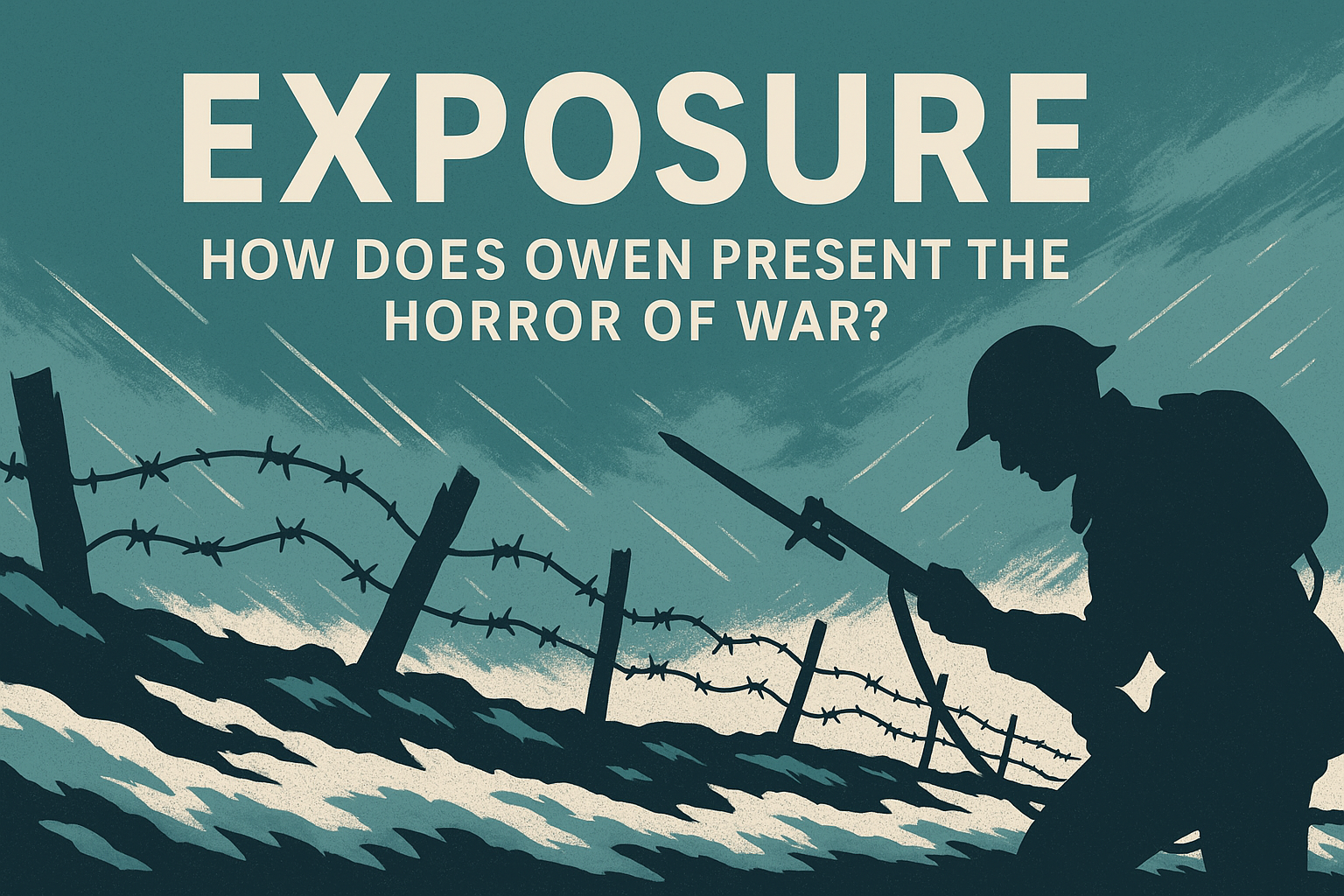Exposure – How Does Owen Present the Horror of War?
Introduction
In Exposure, Wilfred Owen captures the physical and emotional torment experienced by soldiers during World War I. Rather than focusing on dramatic combat, Owen highlights the relentless suffering caused by the weather and the endless waiting in the trenches.
Through bleak imagery, repetition and powerful contrasts, Owen exposes the futility of war and its devastating impact on the human spirit. As a key poem in the Power and Conflict cluster, it presents conflict as exhausting, hopeless and deeply inhumane.
Key Points and Quotes
1️⃣ Nature as the True Enemy
Owen presents the soldiers not as victims of gunfire, but of the merciless weather.
Key Quote:
“Our brains ache, in the merciless iced east winds that knive us…”
Analysis:
Owen uses personification to give the wind violent intent. The word “knive” turns the cold into a weapon, showing how nature has become the soldiers’ most dangerous and inescapable enemy.
2️⃣ The Futility of War
The poem portrays conflict as endless, pointless suffering with no clear purpose.
Key Quote:
“But nothing happens.”
Analysis:
This refrain is repeated throughout the poem, creating a sense of monotony and hopelessness. Owen highlights how soldiers endure misery with no progress, symbolising the futility of trench warfare and the waste of human life.
3️⃣ Emotional Numbness and Mental Suffering
Exposure to prolonged horror and cold leaves the soldiers emotionally detached.
Key Quote:
“Slowly our ghosts drag home…”
Analysis:
Owen uses metaphor here to suggest the soldiers feel as though they are already dead. The image of “ghosts” emphasises the emotional numbness caused by trauma and the constant presence of death at the front line.
4️⃣ Religion and Lost Faith
The poem hints at soldiers’ disillusionment with religion in the face of suffering.
Key Quote:
“For love of God seems dying.”
Analysis:
This line conveys a loss of faith among the men, as their suffering challenges their belief in a protective, caring God. Owen often criticised religious and patriotic justifications for war in his poetry.
Authorial Intent
Wilfred Owen fought and died in World War I, and much of his poetry is based on his first-hand experiences. In Exposure, Owen wanted to reveal the grim reality of trench warfare, which was often ignored or glamorised by those at home. His focus on nature as a killer and the endless waiting subverts traditional ideas of honour and heroism in war poetry. Owen’s work remains a powerful condemnation of conflict and a voice for the voiceless soldiers of his generation.
Conclusion
Exposure presents war as futile, isolating and physically and emotionally torturous. Through harsh imagery, repetition and personification, Owen strips away the glorified image of battle to expose the cruel truth of trench warfare. The poem acts as a haunting reminder of the human cost of conflict and the long-lasting scars it leaves behind.
Need Help Preparing for Your GCSE English Literature Exam?
If you’re revising Exposure, the Power and Conflict poetry anthology or other set texts like Macbeth, An Inspector Calls or A Christmas Carol, I can help you build confidence, structure essay responses and sharpen your analysis. Poetry comparison can be daunting, but one-to-one tutoring makes it manageable and even enjoyable.
I offer online sessions and in-person tutoring in South Manchester and surrounding areas.
Get in touch for a quote and a relaxed, friendly chat about how I can support your Literature revision.

